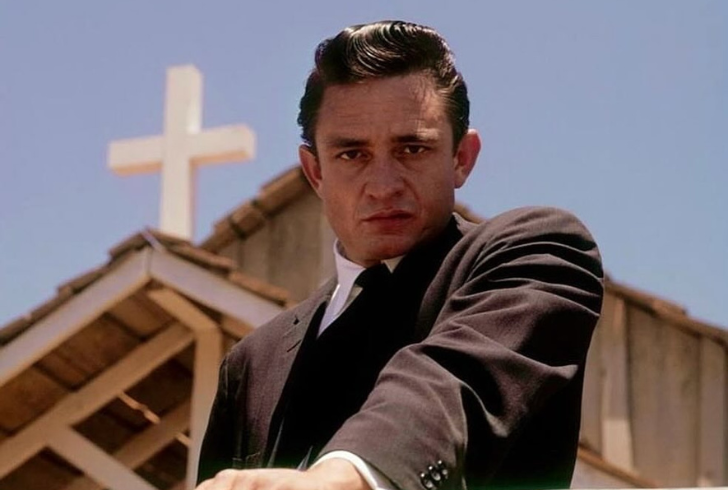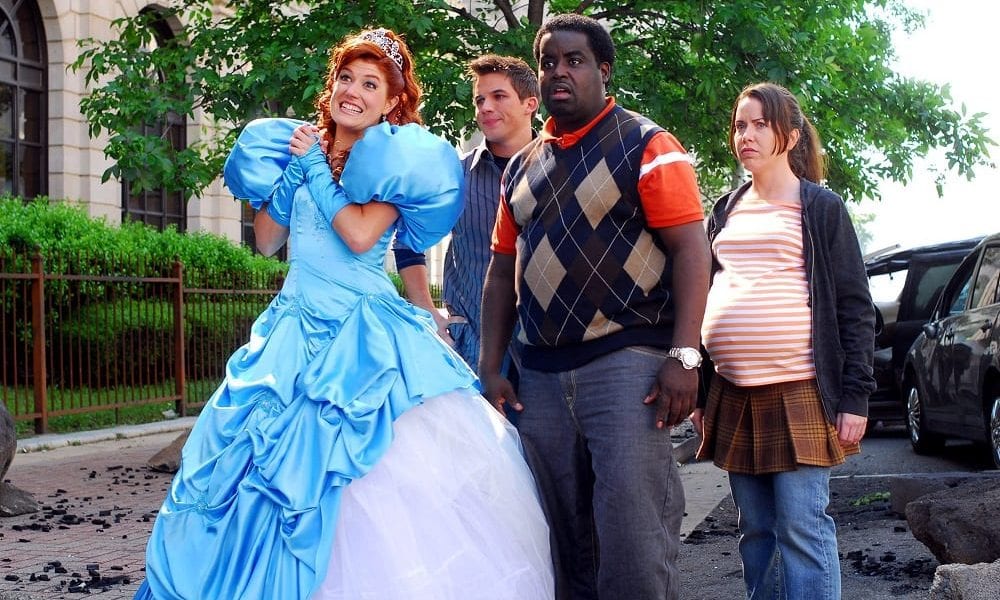Did Johnny Cash Serve Time in Prison?
When thinking of Johnny Cash and prison, the first thing that comes to mind is Folsom Prison. Cash's live album recorded there, along with his hit single "Folsom Prison Blues," cemented his connection to the prison system. But despite this strong association, the question remains: did Cash spend time behind bars?

Instagram | 70sdesperado | Johnny Cash never served time in prison despite his strong association with it through his music.
Johnny Cash’s Arrest Record
Johnny Cash did have his share of legal run-ins, but his time in jail was never extensive. Over the years, he was arrested seven times, mostly for offenses related to his substance abuse issues. His arrest record includes:
- Trespassing on private property while under the influence.
- Attempting to smuggle prescription drugs from Mexico in his guitar case.
- Public intoxication.
- Reckless driving.
- Drug possession.
One of the most infamous incidents involved Cash attempting to smuggle a large quantity of amphetamines across the Mexican border into El Paso, Texas. U.S. customs agents discovered 1,000 pills in his guitar case, leading to his arrest. Cash later admitted in court, "I recognize the mistake I made. It was very bad conduct on my part." The judge, swayed by letters of support from fellow country musicians Gene Autry and Tex Ritter, fined Cash $1,000 and handed down a 30-day suspended sentence, noting that the drugs were prescribed.
But, it's one of Cash's more lighthearted brushes with the law that remains a favorite among his fans. After performing at Mississippi State University, Cash was arrested for picking flowers from a local resident's garden. "You wouldn't believe it," Cash reportedly said. "One night I got arrested in Starkville, Mississippi, for picking flowers."
He humorously recounted the experience, describing how a police officer demanded, "Get in here, boy, what are you doing?" Cash's response was simply, "I'm just picking flowers." The incident resulted in a $36 fine and a night in the Starkville City Jail. While there, Cash met a 15-year-old cellmate named Smokey Evans, to whom he famously gave his shoes as a memento, saying, "Here’s a souvenir. I’m Johnny Cash."
Despite these encounters, Johnny Cash never served a long-term prison sentence. His arrests often ended with nothing more than a night in a local jail.
The Rebel with a Cause
Johnny Cash's rebellious image was shaped by his numerous arrests, struggles with addiction, and tumultuous personal life. His rise to fame began in 1955 when he was discovered by Sam Phillips of Sun Records. But, his fame came with a heavy cost. Cash's addiction to drugs and alcohol led to the breakdown of his first marriage and caused significant disruptions in his career. In one instance, his former manager, Saul Holiff, recalled how Cash missed an entire 10-day tour due to his erratic behavior.

Instagram | 70sdesperado | Johnny Cash’s rebellious image was shaped by his struggles with addiction and tumultuous personal life.
Cash's battles with addiction continued for years, but with the support of his second wife, June Carter Cash, he eventually turned his life around. This period of redemption is a crucial part of Cash's legacy. In 1968, his career was revitalized with the release of the "Live at Folsom Prison" album, which was a huge success. That same year, "The Johnny Cash Show" debuted on television, marking the beginning of his resurgence in the entertainment industry. Cash remained a prominent figure in TV, film, and music until his passing in 2003.
Johnny Cash’s Commitment to Prison Reform
While Johnny Cash never served a lengthy prison sentence, his time spent performing for and speaking with inmates had a profound impact on him. This exposure inspired Cash to become a passionate advocate for prison reform. He was a vocal activist, using his influence to address the injustices within the prison system.
Cash went so far about speak before Congress and meet with six different sitting U.S. presidents to discuss the need for reform. He also contributed financially to the construction of a prison chapel and even helped secure the early release and a record deal for an inmate.
Through his music and public persona, Johnny Cash expressed the struggles of those who felt marginalized, whether inside or outside of prison walls. His songs resonated with themes of rebellion, despair, and redemption. This duality—Cash as both the rebellious Man in Black and the redeemed man of faith—allowed him to connect deeply with the inmates he performed for.
Johnny Cash may not have spent significant time in prison himself, but he dedicated much of his life to improving conditions for those who did. His commitment to prison reform remains one of the most significant aspects of his legacy.








